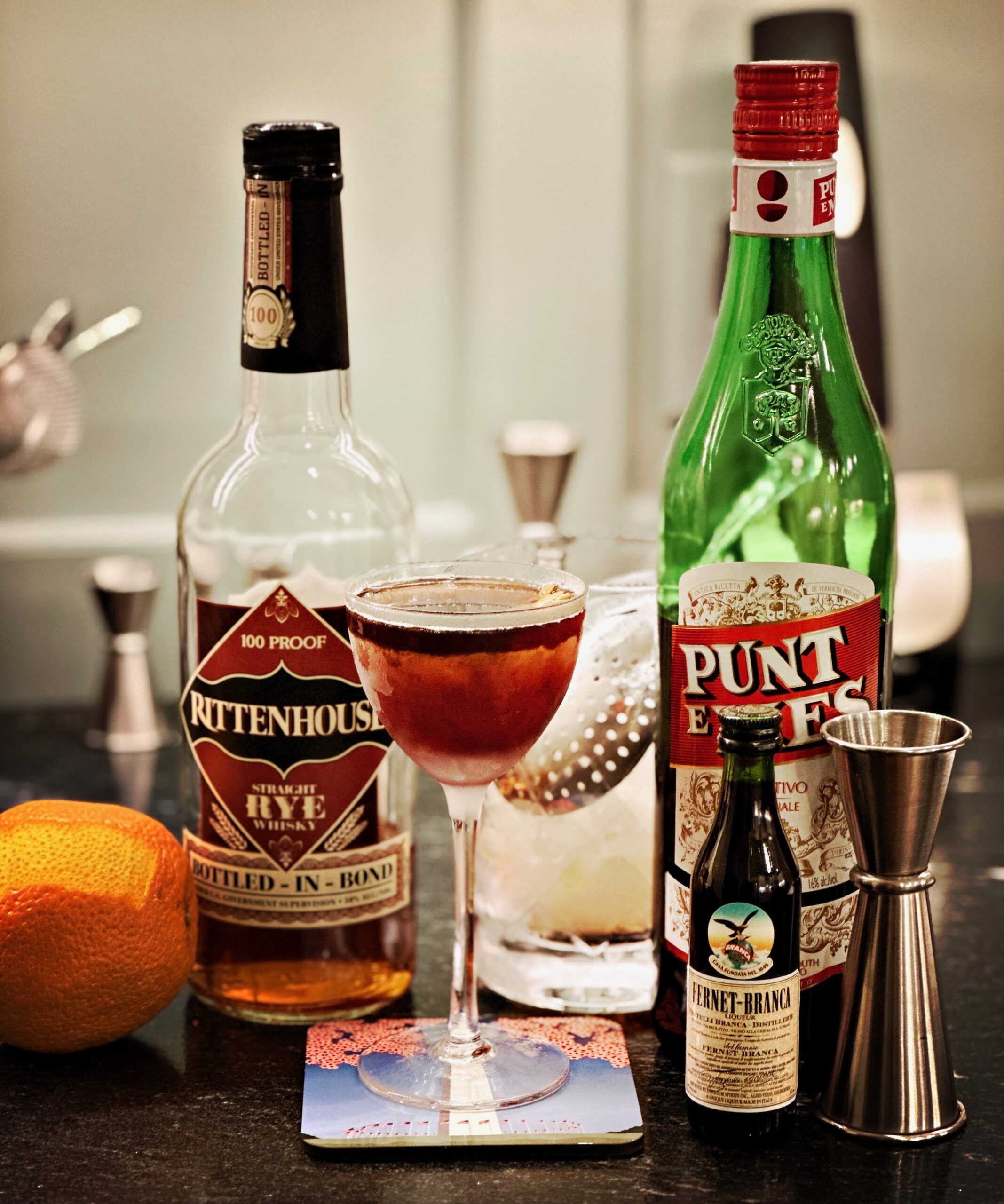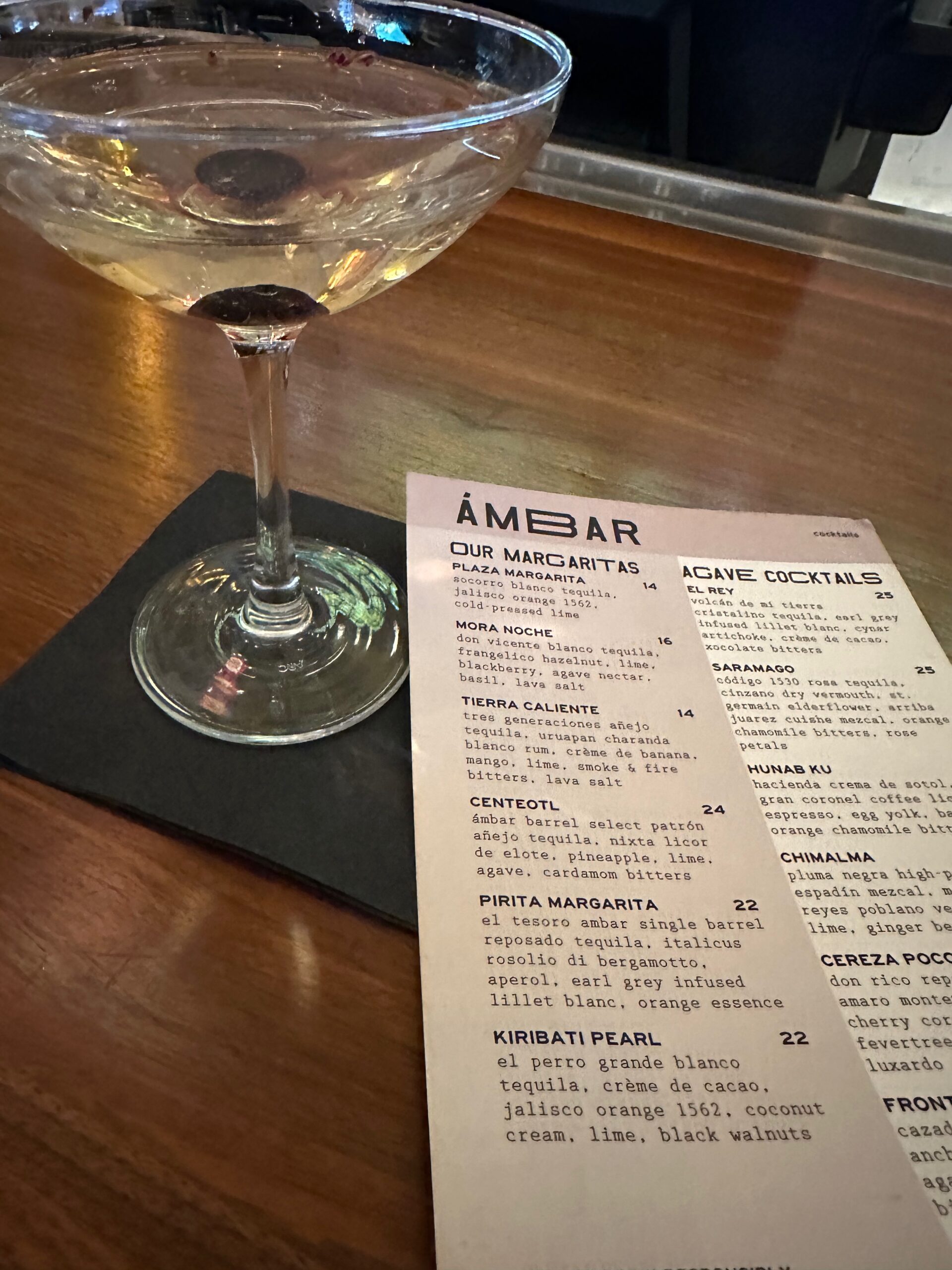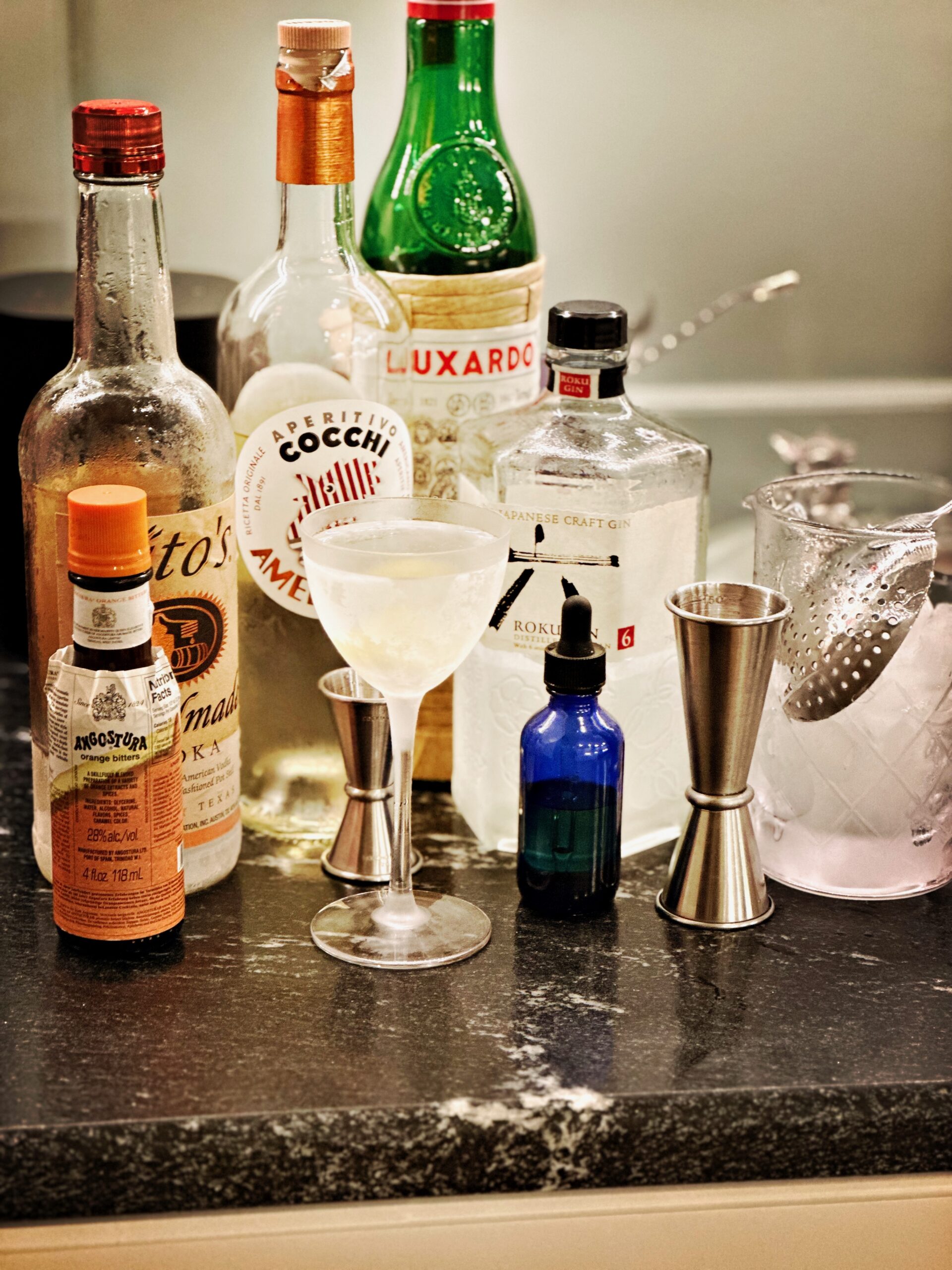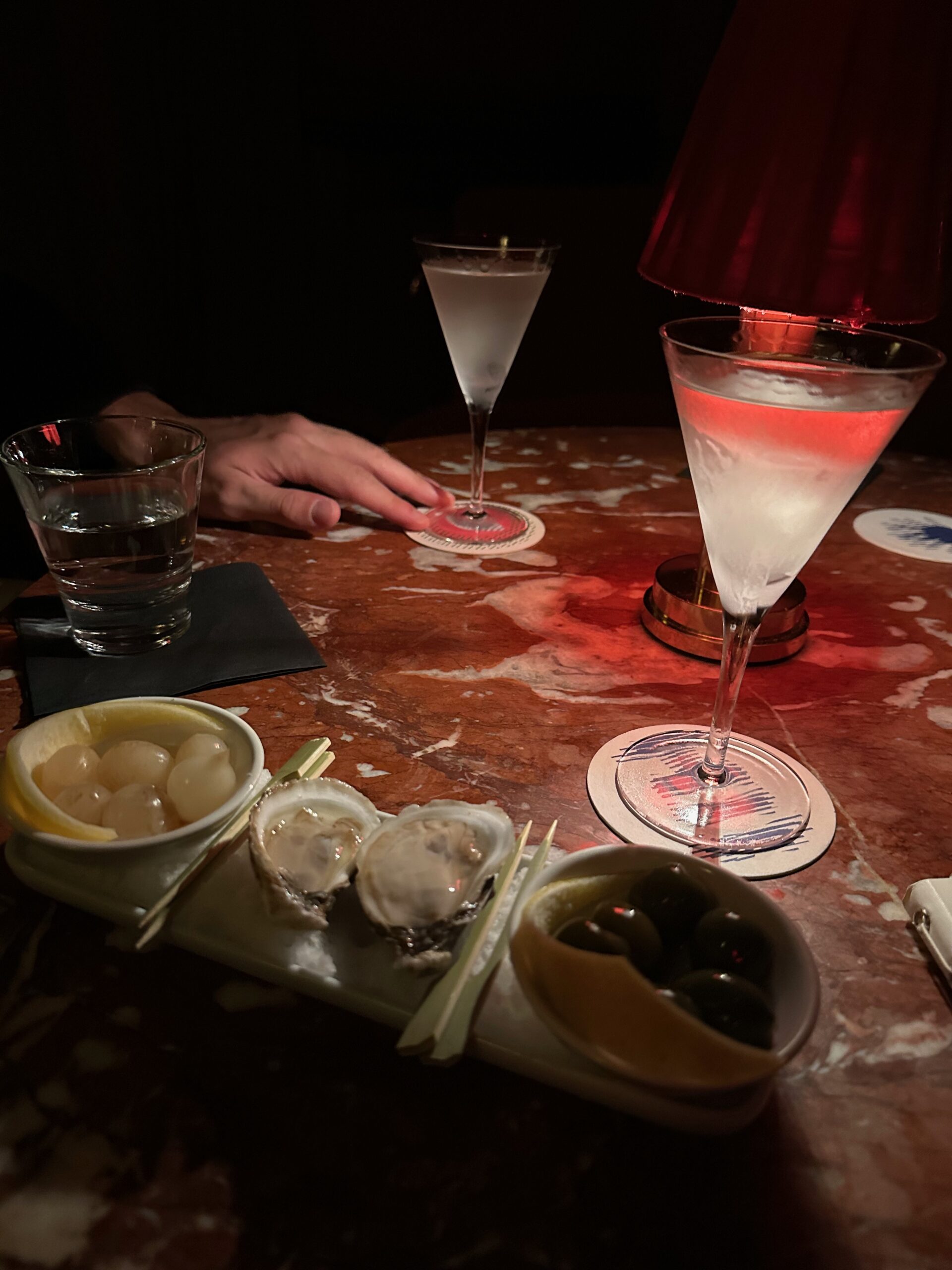Ivy League, Secret Society, Chill Cocktails
Reading Time: 7 minutes.
With campus unrest all around us, let’s take a look back at an abbreviated version of my recent Law360 note on congressional witnesses with my Lightfoot colleague Tyler Yarbrough. Then, 9 minutes and 10 seconds of me reading from the draft of my academic secret-society thriller, The Whisper Book. Several cocktails, including the routinely popular “Drinks I Have Been Drinking.” Finally, poetry in honor of Ray Dolby.
Law

The recent controversy over congressional testimony by Presidents Claudine Gay of Harvard, Liz Magill of Penn, and Sally Kornbluth of MIT reminds us of what to emphasize, and what to avoid, when preparing witnesses for testimony in highly visible and contentious congressional hearings. Congress is neither a court nor a classroom: it lacks the neutral rules of the former and the intellectual give-and-take of the latter. For the congressional witness, the Hippocratic mentality—first, do no harm—is a necessity.
In this article, we set out reminders for congressional witnesses and their counsel.
Who are the stars? In Congress, the Member is the star. In a grand jury room, in contrast, the prosecutor is the star. In the courtroom, the witness is the star. In Congress, there are no stars except the Members.
Is testimony asymmetric? Yes. Not all congressional testimony is “worth” the same. Much of the three college presidents’ testimony was fine (or unexceptional, at least). The antisemitism and campus-policy discussion was an exchange of a few minutes in a lengthy hearing. The asymmetric weight of congressional testimony reveals the danger of the forum. Like the college presidents, your witness may be educated and accomplished, a person of strong views and nuanced argument. Such a witness likely believes that everything she says is of equal, considerable, and persuasive weight. The witness must be sensitized to the reality that, at least in the context of congressional testimony, none of that is true. All moments are important; a few can be fatal.
Do the policies of the witness’s organization pose a danger? Frequently. An organization’s policies, pledges, and mission statements can create an expected standard of conduct higher than what otherwise might be the case. Much cross-examination material can be based on inchoate or contradictory standards. We saw this principle employed to a devastating effect against the three Ivy League presidents when the examining Member of Congress did a deep dive into the universities’ policies about conduct and free speech and then exploited inconsistencies and pretense. As the lawyer, there is not much you can do about the organization’s pre-existing policies, but your witness needs to have a mastery of the policies and have been subjected to cross examination on the inevitable vagueness, inconsistencies, or foolishness of the policies.
At the hearing, does the witness have to be a “Boy Scout”? Almost always. If you are a witness and you get a “Boy Scout” question, give a “Boy Scout” answer. Period. What do we mean by “Boy Scout” questions and answers? The Scout oath requires that a scout be “trustworthy, loyal, helpful, friendly, courteous, kind, obedient, cheerful, thrifty, brave, clean, and reverent.” The list goes to fundamentals of character and morality. It is simple, powerful, and readily understood. If asked whether these adjectives describe that which is “good” or that which is “bad,” overwhelming numbers of people will say the former. Trustworthiness, for example, is a good characteristic, while deceitfulness is a bad characteristic (even though “deceit” is often fundamental to important undertakings, such as law enforcement questioning). When a witness equivocates about the value of these characteristics, the questioner—or judge and jury—will doubt the witness’s credibility. In practice, we saw the committee’s examining Member sow grave doubts about the college presidents’ credibility with simple questions about antisemitism and campus policies. The history and politics of the Middle East are complex in the seminar room but, in the congressional forum, a simple and blunt response about the unacceptability of antisemitism under school policy was the only answer that was going to work.
What kind of environment is a congressional investigation? A congressional investigation is an alien environment. Although there are Senate rules, House rules, and committee rules and resolutions, there are no analogs to the Federal Rules of Evidence or Criminal or Civil Procedure. The committee’s investigation takes place in a political environment and the actors have political goals.
Are all congressional investigations the same? Congressional investigations are not monolithic. They are often highly personalized between Members; between the majority and minority parties; between staffs; and between committees with potentially overlapping jurisdictions. Counsel and witness are dealing with individuals rather than “Congress.”
Do counsel and witnesses understand the context of the investigation? Initially, probably not. As soon as you or your client is contacted, attempt to gain as much information as possible about the investigation; the upcoming hearing; and your client’s role. Unlike grand jury investigations, a congressional investigation does not remain secret for long—if ever at all cloaked. In addition to national media, Washington-centered platform specialists such as Axios, Punchbowl, and Semafor can provide useful background on personal and political dynamics.
How proactive should I be? Very. Ask lots of questions. What is the subject of the investigation? How long has it been going on? How long might it last? Are any other committees or subcommittees looking at the same issue? Is the Executive Branch (the Department of Justice or the regulatory agencies) looking at the same issue? Is the committee headed towards hearings? Has a date been set? Is the investigation a bipartisan inquiry? Minority only? Majority and minority, but working separately?
What is the process? Counsel must then attempt to determine the witness’s role in the investigation — or, more precisely, the committee’s perception of your client’s role. What are the ground rules, if any? Is there a House or Senate resolution concerning the investigation? Request copies. Resolutions and rules define authority and offer counsel opportunities to exploit and will help you make strategic decisions (for example, whether you should participate voluntarily or only by subpoena; whether the staff deposition to which your client is being asked to submit is formally authorized; whether or not the committee intends to grant witnesses immunity).
What is the hearing about? Remember, the hearing is about the questioning Member. The committee Members’ purported questions are rarely designed to elicit information from the witness. They are micro-speeches to maximize camera time on the questioner or to score political points against the opposition. The witness should expect frequent interruptions; indeed, it is somewhat rare when a witness is actually able to complete an answer. There is no judge present to whom the witness can appeal, nor should you expect the chairman to step in.
No amount of preparation, of course, can make a mean-spirited, unbelievable, or lying witness suddenly generous, credible, and truthful. A careful understanding of the venue, however, will help witnesses succeed and hopefully move on with their lives.
Fiction

Despite the orange hue of the lighting, the Flash Fiction event at the Hoover [Alabama] Library was a wonderful event. I was honored to participate.
Cocktails
Drinks I Have Been Drinking

In light of the campus unrest (and arrests), consider the “Cease and Desist”:
2 oz Punt e Mes 1oz Rittenhouse 100 rye 1 barspoon Fernet-Branca Orange peel garnish Stir ingredients over ice. Strain into a Nick 'n Nora glass. Express the orange peel over the drink and drop the peel into the glass.


The Apollo is a bracing Vesper-variation:
1.5 oz Roku gin .75 oz Tito’s vodka .5 oz Cocchi Americano 1 tsp. Luxardo 1 dash Angostura orange bitters 1 dash absinthe Lemon twist Stir over ice and strain into a Nick 'n Nora glass. Express the lemon twist and place it in the drink.

Vermouths
WInston Churchill’s supposed “glance [or bow] in the direction of France” comment about how much vermouth to use in a martini has done great damage. Despite the photo above, I rarely drink a Fifty-Fitty. Nevertheless, my martinis have grown wetter overtime (and often involve two vermouths in equal measure, such as Noilly Prat dry and Dolin Blanc). Vermouths are also wonderful on their own. Here is a drinker’s guide from Imbibe magazine.
Poetry

The Nature of Things Fragile by Peter Vertacnik, the winner of the twenty-third New Criterion Poetry Prize, was recently published by Criterion Books. It’s wonderful stuff: traditional, domestic, and accessible on one level, but dry, dark, and double-taking on the next level. Here is “In memory of Ray Dolby”:
He challenged noise and won, rinsing the hiss from analog recordings the way the sun, on humid mornings, dissolves the fog.



